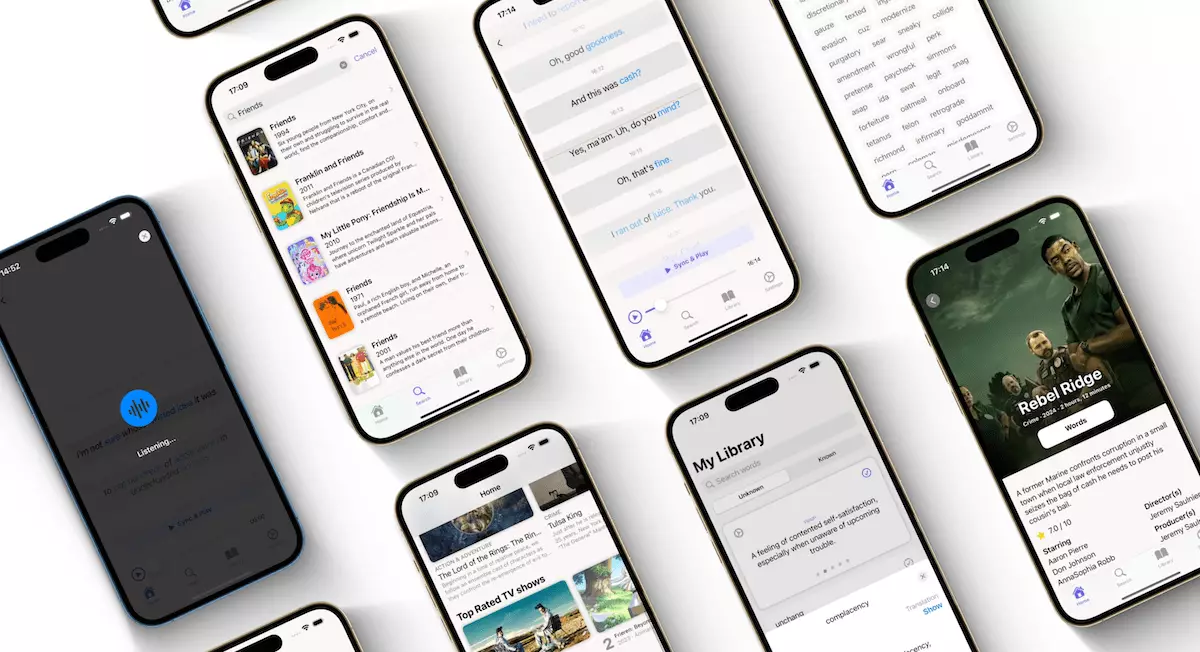In the increasingly interconnected world we live in, language learning has taken on new forms, integrating seamlessly into our daily habits. One intriguing application of this concept is Wordy, a new iOS app designed to make learning English as engaging and relevant as possible by allowing users to immerse themselves in their favorite movies and TV shows. This article delves into the app’s innovative features, the vision behind its creation, and its potential impact on English language acquisition.
Innovative Features of Wordy
Wordy stands out for its unique learning mechanism: the app interacts with the content users are already consuming. With a library boasting over 500,000 titles, including noteworthy series such as HBO’s “The Penguin” and the much-discussed Disney+ offering “Agatha All Along,” users can learn vocabulary in context—a method proven to enhance retention and understanding. What sets Wordy apart is its real-time translation and definition feature, which functions while the user watches shows. When an unfamiliar word appears onscreen, users can glance at their phone for immediate translation, making the process of learning feel less cumbersome.
The app employs advanced artificial intelligence algorithms that analyze subtitles, lemmatize words, and utilize speech recognition technology to track dialogue from the user’s TV or computer. This fluidity allows for a truly interactive experience, eliminating interruptions commonly associated with traditional methods of vocabulary learning. Additionally, Wordy categorizes vocabulary by difficulty level, enabling users to gauge their proficiency and focus on specific areas needing improvement.
At the helm of this project is Sándor Bogyó, a 23-year-old indie developer from Budapest. His motivations are deeply rooted in personal experience; Bogyó created Wordy out of a necessity he felt during his own language learning journey. Having relied on similar tools in his own studies—most notably, the Chrome extension Language Reactor—he recognized a gap in the market for a mobile application that maintains the usability of a smartphone alongside the viewing experience. Bogyó’s commitment to creating a user-friendly product is evident in his attention to detail and dedication to quality.
Wordy does not merely represent an application but rather embodies a movement toward democratizing language education through accessible technology. Bogyó’s insights into the learning process highlight a significant shift: the realization that engaging content can facilitate effective learning.
An essential aspect of Wordy’s functionality is the ability for users to save words that they encounter during their viewing. This feature allows learners not just to reactively understand new vocabulary, but also to proactively engage with it, revisiting and practicing through digital flashcards. This method caters to varied learning styles and recognizes that repetition is key to mastering a new language.
However, it is important to acknowledge that Wordy currently supports only English—a limitation that may deter non-native speakers who rely on multilingual resources. While Bogyó is committed to expanding the app’s language offerings, his cautious approach to ensuring quality over speed is commendable. This strategic decision may be a safeguard against diluting the user experience, but it does prevent immediate access for a broader audience.
Wordy is an ambitious venture that aligns modern technology with educational needs, setting a promising precedent for how we approach language acquisition. By allowing users to engage with language through enjoyable content, it transforms the often laborious task of learning into a lively and immersive experience. The app’s subscription model—$2.99 per month or $29.99 per year—further positions it as an affordable option in the language-learning space.
As Wordy continues to evolve, its success may hinge on how effectively it expands its multilingual capabilities without compromising on quality. Language is fluid, and so too should be our methods for learning. With Wordy, users can expect not just a tool, but a vibrant companion in their journey to mastering English, making it a noteworthy entrant in the educational technology landscape.

